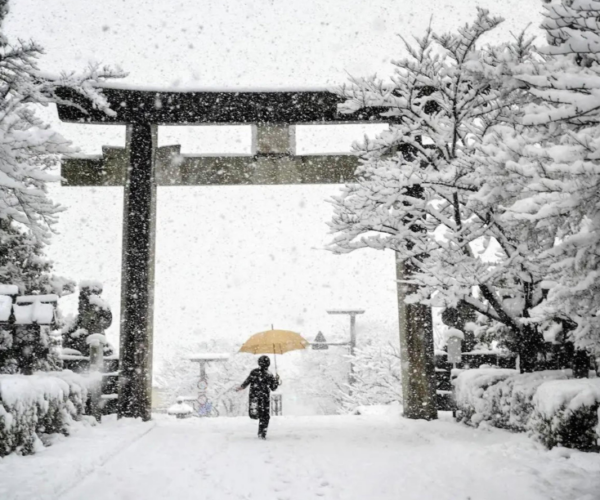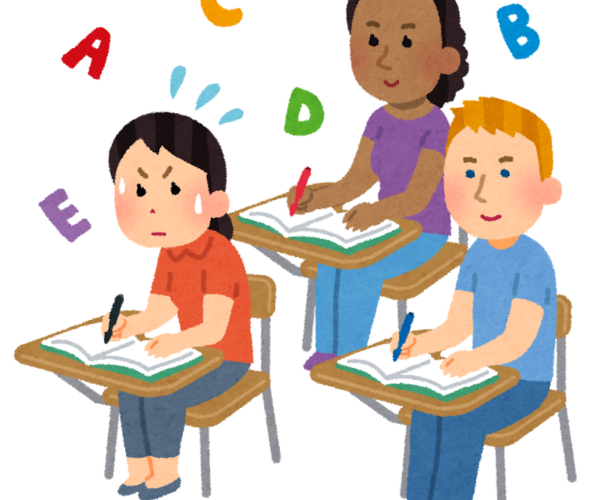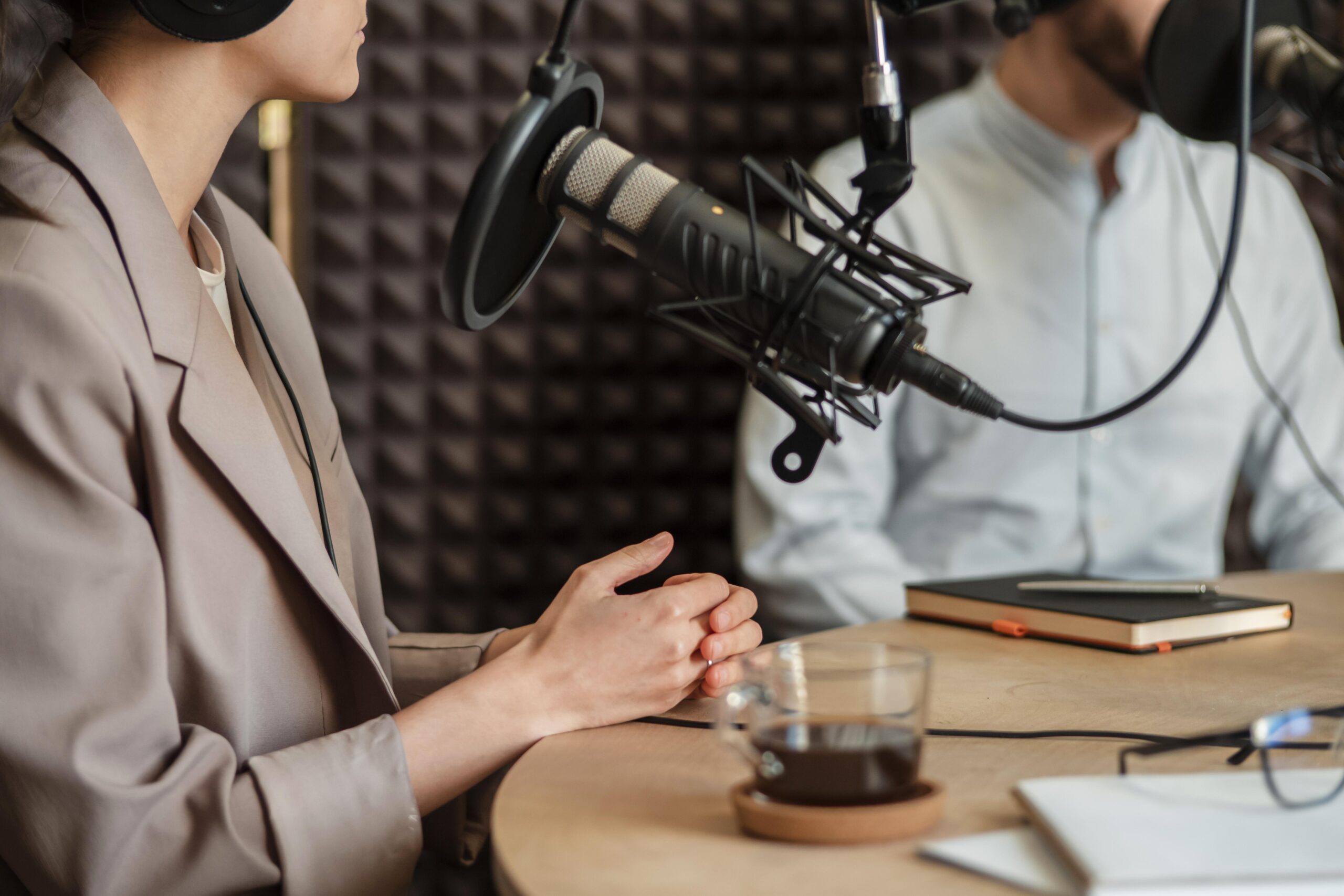This article was originally featured in the December 2023 issue of Connect.
Sonia Narang (Gifu 2003-2004)
Kimberly Matsuno (Niigata 2019-2022)
As is tradition with every JET Program participant, we must ask the questions: Why JET? Why Japan?
My story goes all the way back to the fourth grade. My elementary school had a program that allowed students to go to Japan. Unfortunately, I couldn’t go but I became fascinated with Japanese culture and history, which really peaked around middle school.
Despite my interest in Japan, I didn’t hear about the JET Program until two years after I graduated from college. My dad found a JET Program brochure and showed it to me thinking it might be something I would be interested in. He, obviously, knows me well as I ended up applying for the program a few months later and ultimately ended up getting placed in Hida Furukawa, Gifu.
An interesting fact about my application is that I was in India for a wedding during the application period, and had to express-mail my application all the way from India.
What is your average workday like?
In my line of work, no days are the same. It’s actually one of the things that initially attracted me to the job.
But generally speaking, I would say that travel accounts for about 50-60% of my time.
Another big chunk of my time is spent transcribing interviews and putting the whole story together. After traveling to a destination and interviewing subjects, I write around the interviews and add in my own narration. Then I do what we call in radio a “read through.” Most radio stories are about five to eight minutes (which is the sweet spot for American radio). So I have to ensure that my story falls within that time frame. Then I upload the audio. Most of the time the station edits the audio, but sometimes I have to edit it myself.
Another thing that takes a lot of time is applying for travel funds through grants.
Besides that, recently I’ve really been making it a priority of mine to spend time training young journalists. I want to ensure that we have diverse voices in radio discussing diverse topics. So I want to do whatever I can to support those young journalists.
It’s safe to say that your job is a dream job for many JETs who started writing while in Japan. But it’s not easy to transition from blogging about what was served for kyushoku on a WordPress blog to getting someone to pay you to write about. . . well, anything. . . . Do you think that a degree in journalism is necessary in order to get your foot in the door?
In my case, I felt like a structured program was the best for me to get a career in multimedia and to learn the skills. But these days, you can get a lot of that information from videos and tutorials online—often for free.
And while a structured program worked for me, I truly believe that work experience is the best teacher.
In my experience, school provides you with a lot of theoretical knowledge, but not much practice. That theoretical knowledge was important for me, but there are so many other ways to get started in journalism—particularly in radio.
There are a ton of internships available at radio stations (especially smaller ones like local NPR stations). These internships are such a great way to learn important skills that can really set you apart—like how to package a story, edit audio, and even adjust the way you speak to ensure the best sound quality.
I truly believe that local radio is great because they really seem to care about and take care of their people. So I would be remiss if I didn’t give a shout-out to my own local station KALW in San Francisco. KALW Public Radio is on NPR and BBC, and has a unique nine-month radio journalism training program for adults called the KALW Audio Academy.
The academy is completely free and teaches you how to make a radio story from scratch. You are given a mentor and will learn everything from pitching stories, to story structure, and editing in ProTools, and by the end, you will have a whole portfolio of radio stories that you produced from start to finish.
What tools and resources do you find yourself using as a journalist and would recommend aspiring journalists to familiarize themselves with?
I think it is paramount to learn how to write a story pitch. You can write an amazing story, but if you can’t get anyone to publish it, then what’s the point? When it comes to radio pitches, Transom has entire lessons on how to write a pitch, as well as a great podcast for beginners.
I also find myself using Adobe Premiere a lot, as well as Pro Tools for sound editing. So it would be good to familiarize yourself with those.
When it comes to networking and mentorship, The Association for Independence in Radio is a great organization to join, as it offers not only resources and classes but also one-on-one mentorship. There are a lot of other listservs and Google Groups out there as well such as “LADIO”—a listserv for women in radio and audio, “Gaydio”—a group for LGBTQ radio producers and audio creatives, and “Podcaster@s”—for Spanish speaking podcasters. Additionally, there are a ton of local-based communities for those looking for support within their community. (Please note that LADIO and Gaydio do require private invites to join those organizations.)
But when it comes to actually recording audio, I’ve retired my Canon camera and just use an iPhone now, as the quality is just as good but weighs a whole lot less. Also, I find WhatsApp to be incredibly useful for connecting with international connections. WhatsApp allows a person to send voice memos in an easy manner and has the additional benefit of using low bandwidth—great for places with low internet speed.
How did your experience in Japan on the JET Program contribute to your success as a journalist?
In Japan, you have to learn everything from scratch. And that’s exactly what a journalist does.
When I first came to Japan, the only Japanese word I knew was “kanpai.”
I had to learn how to communicate with people and I had to learn how to do it fast.
As a journalist, I find myself in that position often.
Today, I feel confident that you can drop me anywhere in the world, and I will be able to get a conversation going because I know how to talk to people and how to make them laugh. This is key to being a good journalist. Conveying information isn’t effective if you can’t get people to relate to you.
I can say without a doubt, that the reason for that is because of the JET Program. Before moving to Japan, I was very shy and was not confident in being part of a conversation—let alone starting one. My time in Japan gave me a lot of confidence.
My time on the JET Program also made me more interested in Japan and Asia-related topics—which have become my bread and butter in international journalism.
How has being a part of the JET alumni community helped you?
When I first returned to the U.S. after my time as a JET, I was very plugged into the JET alumni community. I would often attend events and luncheons sponsored by my local JETAA chapter.
This was mostly because it was very difficult for me to leave Japan. I felt out of place upon my return and like I didn’t belong in the U.S. I remember thinking back then that I made the wrong decision. However, the JETAA community really comforted me and helped me overcome those initial feelings. They helped me realize that I was not alone in feeling like that either. Also, through JETAA, I was able to meet Japanese people and create a friend group who understood my experiences.
Do you have any words of advice for JETs past or present who wish to become journalists someday?
Find some niche topics that you are interested in, and listen and read to what others are publishing in those fields. For me, that was women, health, and climate change.
Don’t be afraid to get started. And don’t feel like you aren’t good enough yet.
Start small. Contribute to podcasts or even your own social media platforms.
And pay attention to what gets the most engagement. Always remember that media is a two-way street. Find out what your contacts want to know and engage with your audience.
Final question. . . . What is your favorite podcast to listen to?
My favorite program would have to be The World, which airs on most NPR stations and is public radio’s longest-running daily global news program. I think it gives you a nice selection of international stories and culture and is definitely worth listening to if you are interested in a career in multimedia journalism.
About the Author
[[i]]Sonia Narang is a JET alum (Gifu 2003-2004) and a multimedia journalist who covers climate change and the environment, global health, music and culture, and immigration issues. She primarily focuses her reporting on the lives of women and girls and the challenges they face around the world.
Sonia’s journalism work has taken her across Asia and the Pacific, Europe, Africa, and North America—from Indigenous fashion in Canada to women farmers affected by cyclones in Fiji.
She has produced and reported stories for PRI’s The World, the BBC, The New York Times, GlobalPost, PBS NewsHour, FRONTLINE/World, Time.com, and NBC News.
Sonia has a Master’s degree in documentary filmmaking from the UC Berkeley Graduate School of Journalism. She posts her photography from around the world @sonianarang on Instagram and Twitter. To see her recent work, click here to visit Sonia’s portfolio.
Kimberly Matsuno is a JET alum (Niigata 2019-2022) currently serving as USJETAA‘s Programs & Communications Coordinator. She was an ALT in Niigata from 2019-2022, during which time she contributed to [CONNECT] Magazine as both a writer and a section editor. She is excited to continue contributing to [CONNECT] and to assist in fostering relations between current JETs and the JET alumni community.




